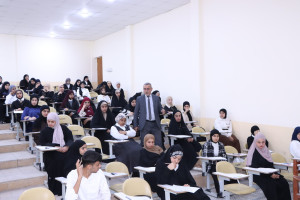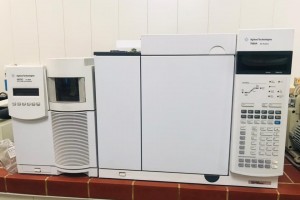
The College of Education for Pure Sciences at the University of Basrah discussed a master’s thesis on determining the importance of IL-17 in food-sensitive people.
The message presented by the researcher (Nisreen Thamer Muhajer) included due to the increase in the spread of food allergy disease in the recent times, which may impose great psychological, social and economic burdens on patients and their families, especially when they appear early in a person's life and because of their major role in exacerbating the disease in the majority of the population The current study wanted to shed light on it.
message aim
To determine the role of interleukin-17 in the development of food allergy. And to the preparation of antigens from the peanut plant and its effect on the development of allergies and the measurement of the level of quantitative IgE (Total.IgE), which is specialized in allergic people and control samples. And the determination of the expression of interleukin IL-17 using qPCR technology and the study of the relationship between the studied immunological indicators and their effect on patients with food allergy to peanuts.
Message inferred
It was concluded from the current study that the number of people with food allergy disease among the population of Basra governorate increased due to dietary habits in addition to genetic factors. And the presence of IgE-specific antibodies to the peanut antigen, and this indicates the prevalence of food allergy to this antigen. There is a direct relationship between the level of quantitative and specific IgE antibody. And the presence of an inverse relationship between the level of quantitative and specific IgE antibody and interleukin 17.
Recommended letter
We recommend that further in vitro studies be performed to measure the effect of peanut antigens on immunological parameters. The study recommends conducting more immunological and molecular studies for other interleukins that could be used as immunotherapy.
The study also recommends conducting food allergy tests to find out the type of food that triggers an allergy and to reduce the risk of anaphylactic shock, which may lead to death, especially in children.








